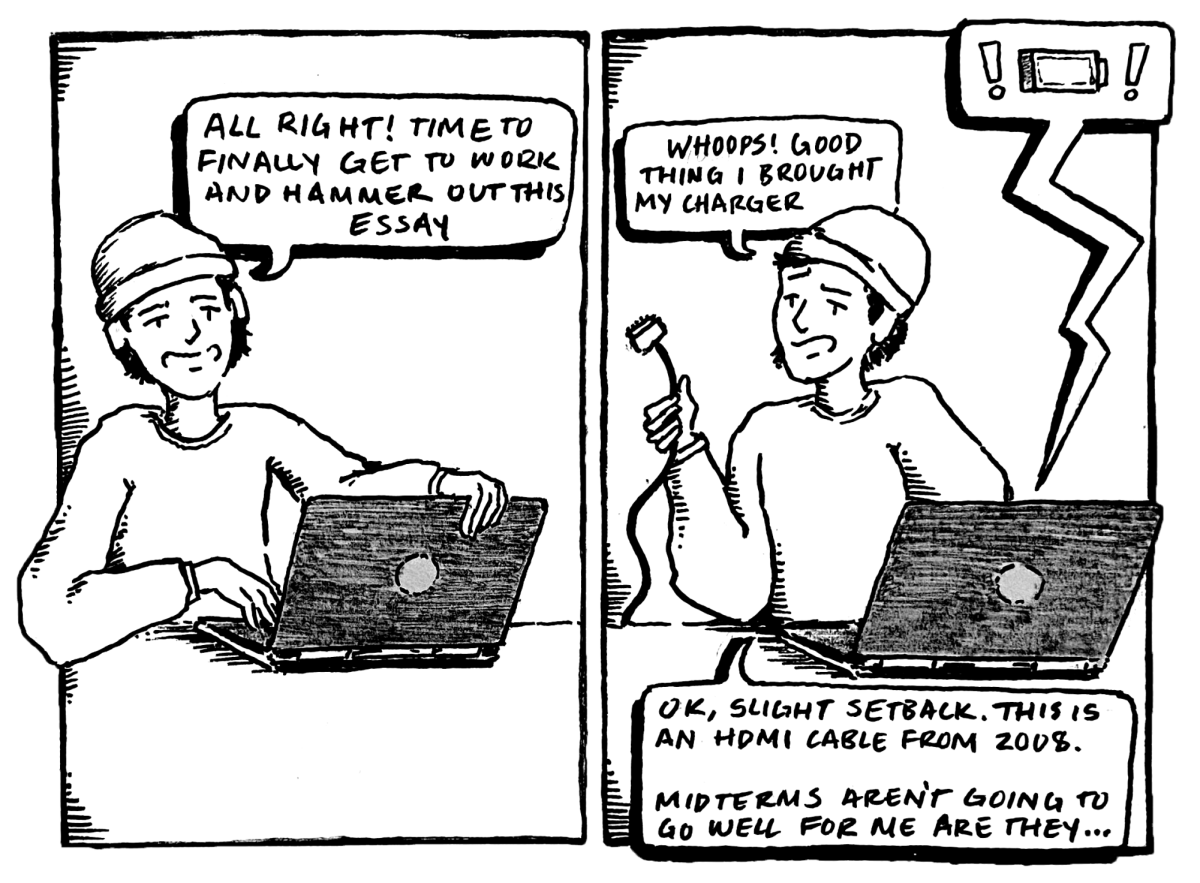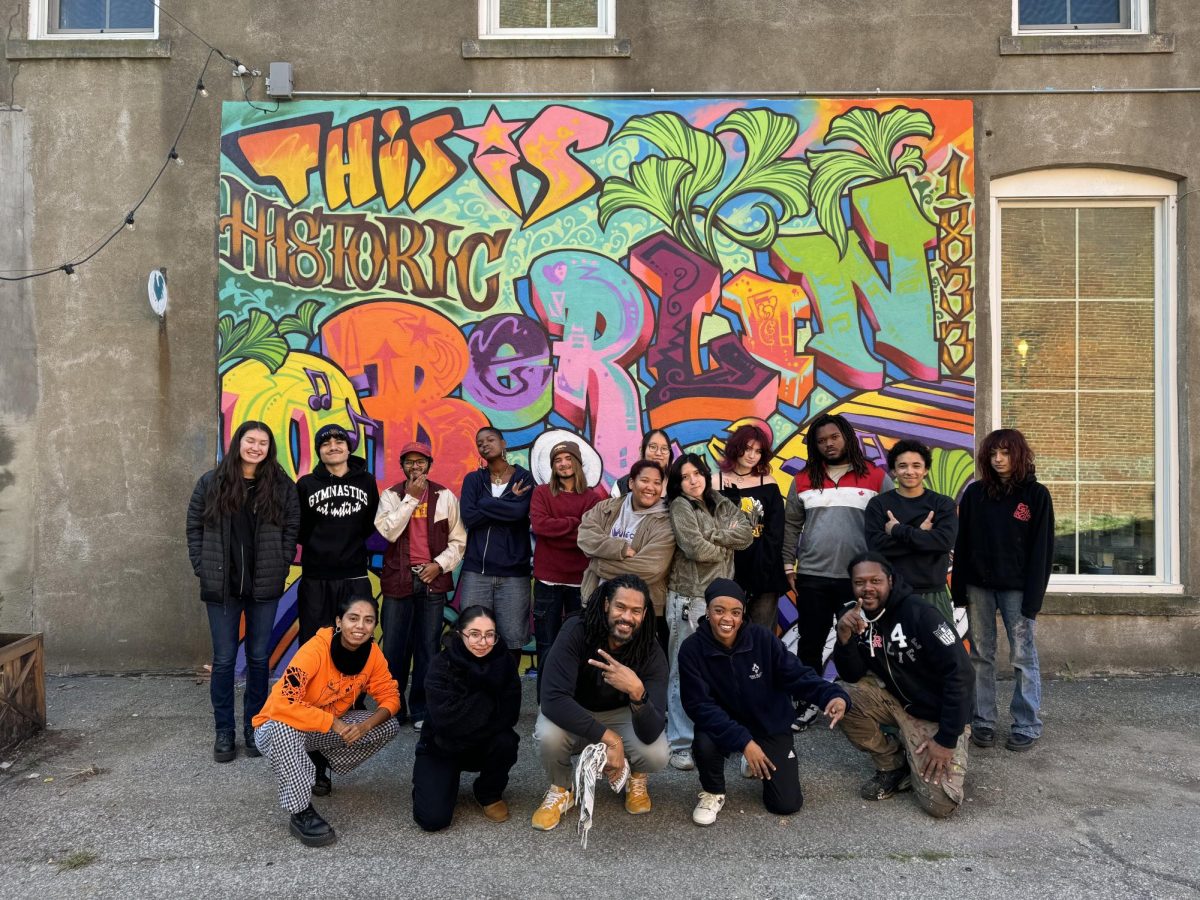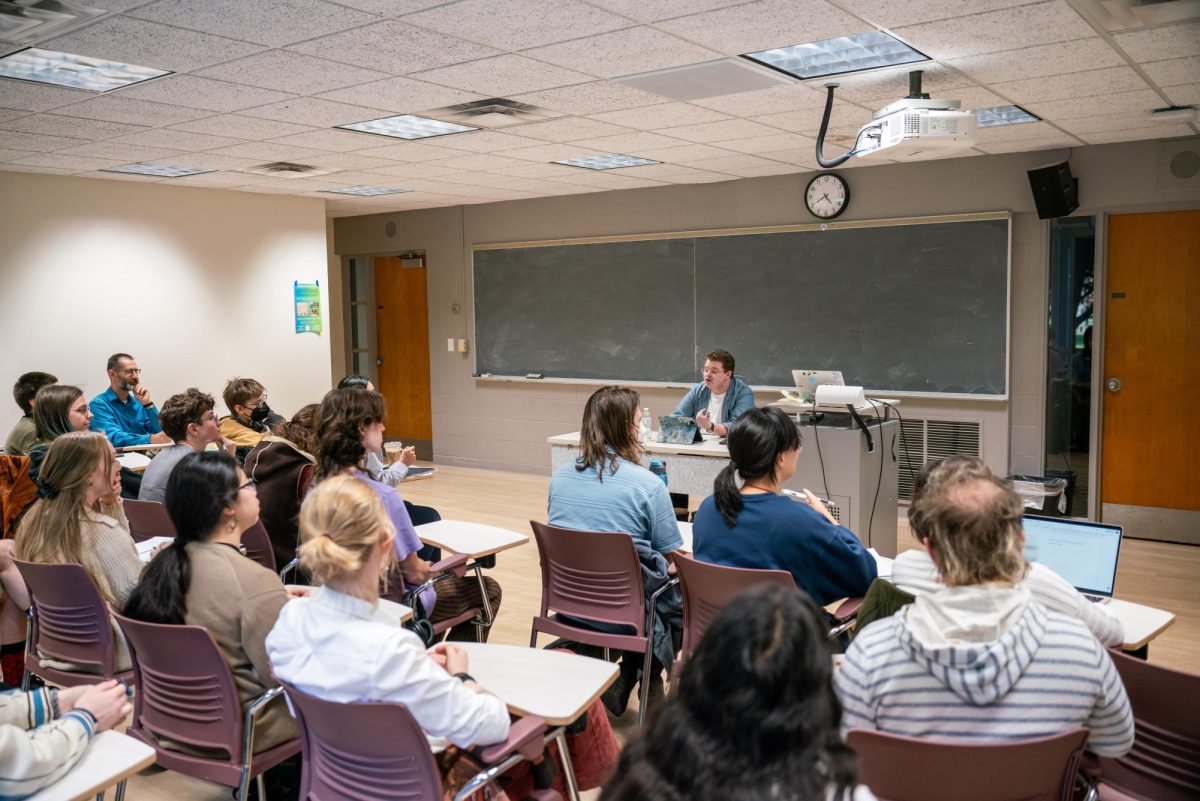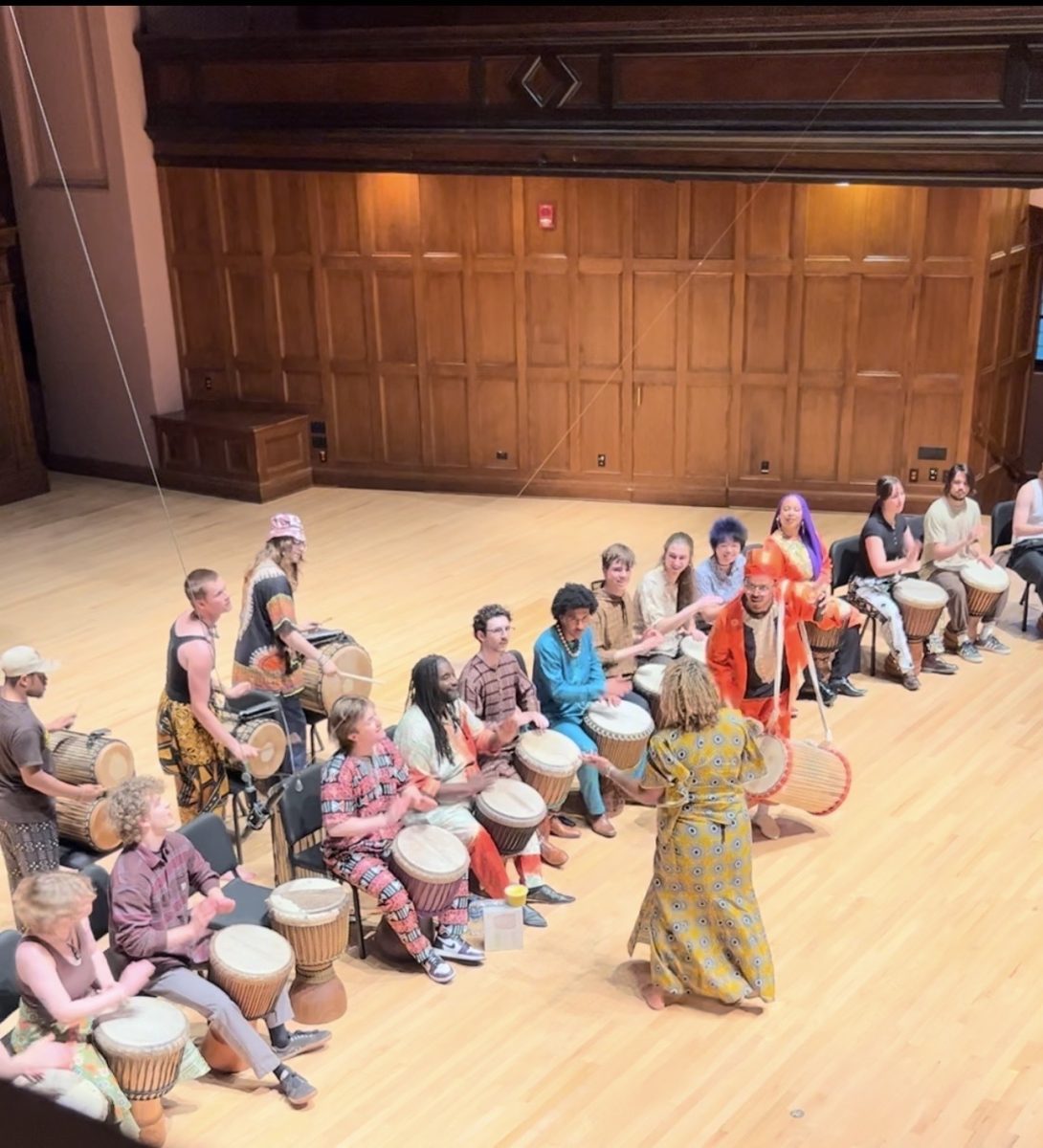From Urban Wasteland to Apiary: Chávez Envisions Collaborative Community through Beekeeping
February 21, 2014
What can humans learn from the social practices of bugs? A lot, according to educator and cultural activist Juan William Chávez. This past Tuesday, Chávez delivered a lecture titled “The Pruitt-Igoe Bee Sanctuary” through the Ellen Johnson guest lecture series sponsored by Oberlin’s Art History department. The talk centered around his proposed project to create a bee sanctuary in the abandoned Pruitt-Igoe housing project in St. Louis.
Chávez describes himself as an artist who works in the public realm. In an attempt to move out of the commercialization of the art world, Chávez began working within the nonprofit arts spectrum. He described driving to work and passing a mysterious urban forest daily — a forest which became the catalyst for the project he described in the lecture. “The beginning of my project was … my ignorance,” Chávez explained. With further investigation, he learned that this 33-acre urban forest was the remnants of the Pruitt-Igoe housing project.
The Pruitt-Igoe housing project began in the mid 1950s as an effort to combat the rapid population growth in St. Louis during the postwar era. The 33-building modernist housing complex was an extravagant project with a $30 million budget, but soon after construction was completed, tenants began moving out. Since its abandonment, the complex has become notorious for being one of the biggest failures in urban development and design. In 1972, the buildings were imploded — a spectacle that was widely broadcasted on television. Schools were built on parts of the empty plot, and the rest was overtaken by the urban forest Chávez used to pass.
The urban forest boasts a myriad of wildlife, ranging from invasive plants to wild turkeys to bees. Chávez was particularly interested in the bees because of the metaphor that they provide for the city of St. Louis. The bees in the Pruitt-Igoe site experienced what is called colony collapse disorder, which mirrors the history of the city of St. Louis and the Pruitt-Igoe housing project. Colony collapse occurs when a beehive or bee colony abruptly disappears for mysterious reasons, but the queen remains. Chávez stressed the importance of bees in our daily life because of their essential role in pollinating fruits and vegetables. Due in part to modern agricultural practices, the population of bees is dying out and colony collapse is increasingly common.
As he delved into his research on bees, Chávez came to realize that Americans are fearful of bees in public spaces. He contrasted this fear with European attitudes, which celebrate the insects. One of the most famous public spaces in Paris, the Luxembourg Gardens, boasts an apiary as well as a beekeeping school founded in 1856.
With the Pruitt-Igoe Bee Sanctuary project, Chávez aims to incorporate urban agriculture and beekeeping in the abandoned space. He wants to include a memorial sculpture within the site that echoes the original architecture of Minoru Yamasaki, who designed the infamous housing project. While the apiary has not yet been realized, Chávez has created an outdoor classroom in a nearby empty lot that emphasizes experiential learning by teaching kids how bees work — that is, by helping each other. Chávez described the beehive as a super-organism that works to create a final product — like a co-operative community, a workplace or a city. He explained how this kind of collaborative process can be applied to the community building he aims to achieve through the Pruitt-Igoe Bee Sanctuary. Chávez writes on the sanctuary’s website that he wants his apiary “to redirect the conversation surrounding Pruitt-Igoe by developing creative strategies that both memorialize the past and provide economic opportunity for the future.” With the success of his outdoor classroom, Chávez has founded the BEEHIVE: Food Incubator, which combines the classroom with a modified grocery store.
The continued support from community members for his project has allowed Chávez to teach artistic skills to a larger audience, which can easily be applied to new collaborative projects. Ultimately, the bee sanctuary will teach the community of St. Louis the ways of a super-organism, which can cooperate to transform the derelict spaces that surround its citizens into places of public worth and socioeconomic support.


















